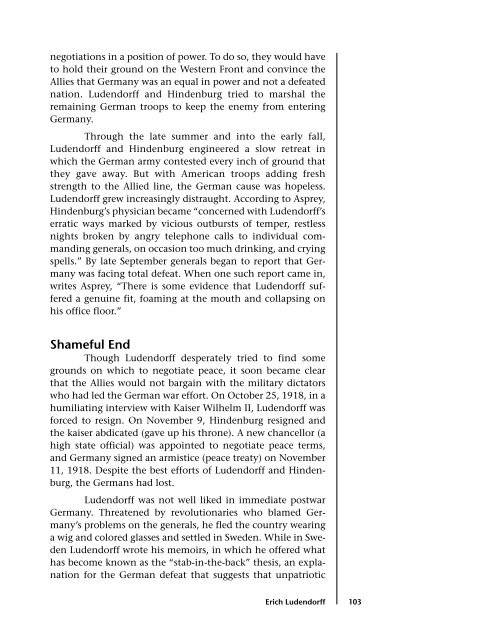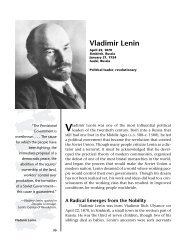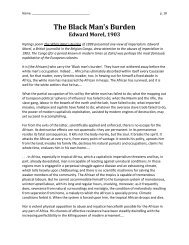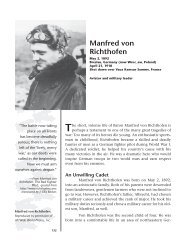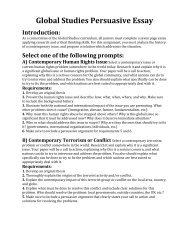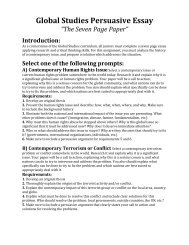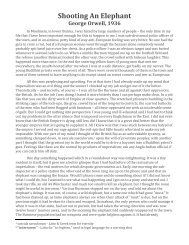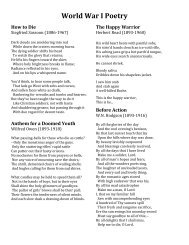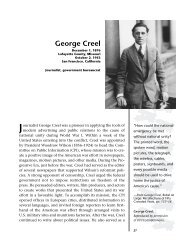Erich Ludendorff
Erich Ludendorff
Erich Ludendorff
Create successful ePaper yourself
Turn your PDF publications into a flip-book with our unique Google optimized e-Paper software.
negotiations in a position of power. To do so, they would have<br />
to hold their ground on the Western Front and convince the<br />
Allies that Germany was an equal in power and not a defeated<br />
nation. <strong>Ludendorff</strong> and Hindenburg tried to marshal the<br />
remaining German troops to keep the enemy from entering<br />
Germany.<br />
Through the late summer and into the early fall,<br />
<strong>Ludendorff</strong> and Hindenburg engineered a slow retreat in<br />
which the German army contested every inch of ground that<br />
they gave away. But with American troops adding fresh<br />
strength to the Allied line, the German cause was hopeless.<br />
<strong>Ludendorff</strong> grew increasingly distraught. According to Asprey,<br />
Hindenburg’s physician became “concerned with <strong>Ludendorff</strong>’s<br />
erratic ways marked by vicious outbursts of temper, restless<br />
nights broken by angry telephone calls to individual commanding<br />
generals, on occasion too much drinking, and crying<br />
spells.” By late September generals began to report that Germany<br />
was facing total defeat. When one such report came in,<br />
writes Asprey, “There is some evidence that <strong>Ludendorff</strong> suffered<br />
a genuine fit, foaming at the mouth and collapsing on<br />
his office floor.”<br />
Shameful End<br />
Though <strong>Ludendorff</strong> desperately tried to find some<br />
grounds on which to negotiate peace, it soon became clear<br />
that the Allies would not bargain with the military dictators<br />
who had led the German war effort. On October 25, 1918, in a<br />
humiliating interview with Kaiser Wilhelm II, <strong>Ludendorff</strong> was<br />
forced to resign. On November 9, Hindenburg resigned and<br />
the kaiser abdicated (gave up his throne). A new chancellor (a<br />
high state official) was appointed to negotiate peace terms,<br />
and Germany signed an armistice (peace treaty) on November<br />
11, 1918. Despite the best efforts of <strong>Ludendorff</strong> and Hindenburg,<br />
the Germans had lost.<br />
<strong>Ludendorff</strong> was not well liked in immediate postwar<br />
Germany. Threatened by revolutionaries who blamed Germany’s<br />
problems on the generals, he fled the country wearing<br />
a wig and colored glasses and settled in Sweden. While in Sweden<br />
<strong>Ludendorff</strong> wrote his memoirs, in which he offered what<br />
has become known as the “stab-in-the-back” thesis, an explanation<br />
for the German defeat that suggests that unpatriotic<br />
<strong>Erich</strong> <strong>Ludendorff</strong> 103


